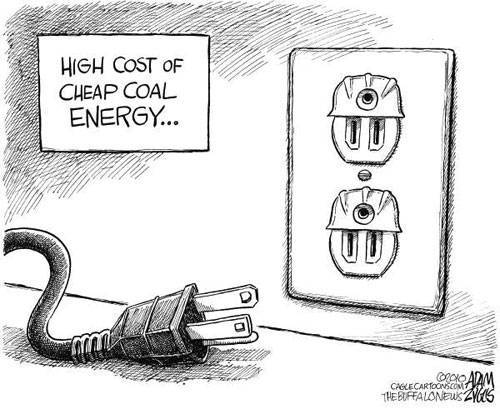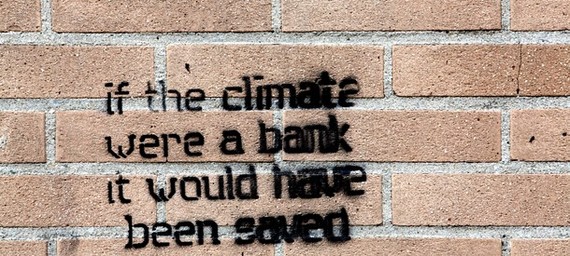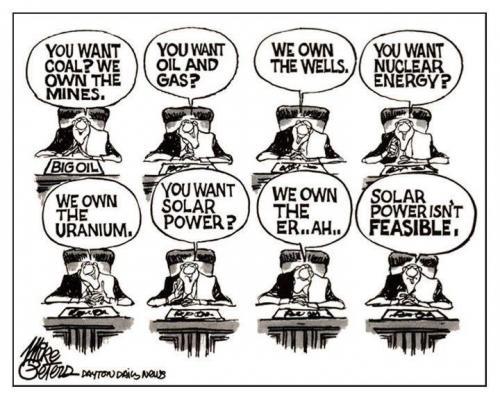I had written an article last week on ABC online as a rebuttal to Brendan Pearson, chief executive of the minerals council of Australia, who claims that coal is the answer to energy poverty. I tried to reason that coal does not alleviate but aggravates poverty. Now I am not sure what Mr. Pearson has to say about this but the comments on my blog were interesting to say the least. While I know that some of it is just regular online trolling, I was struck by a few repetitive points that I have encountered in various other platforms. Here's trying to state and break some long-held myths on coal and other dirty energy forms.
1. Because it's cheap
The quintessential argument for coal is the fact that it's cheap. But it isn't if you consider the loss of hundreds and thousands of human "capital" every year to its pollution. It isn't if you consider the irretrievable forests and invaluable biodiversity lost to coal mining. It isn't if you deem development needs to be inclusive and democratic and it even isn't if you consider the doubling of coal prices over the last five years. Saying coal is cheap is now akin to seeing Earth as the center of the universe. It's a myth that is now too inane to believe.
2. Because renewables are expensive
Another immediate defense of coal is that the alternative to it, renewable energy (RE), is expensive. While this might be true for now, nothing has been able to stop the plummeting of RE prices in the last five years. Not even the fact that subsidies for fossil fuels are six times higher than subsidies for renewable energy. What's stopping us are the strong interests of fossil fuel giants in making progress on cutting emissions.
3. People in India and Africa will kill themselves with wood stoves and related deforestation. We need to pull them out of poverty.
Science and history belie this argument. Centralized grid systems that thrive on coal have failed to deliver on the needs of the poorest and have in fact aggravated poverty by negatively affecting health and livelihoods. As for the wood stoves and deforestation, efforts are well underway to deploy smokeless wood stoves and enforce sustainable forest management. These solutions are not perfect but there is hardly any reason to replace one evil with another (soot with coal). These solutions can be local and with people's consultations as opposed to imposing large unreliable grids on people, effectively leaving them without any other option.
4. How do you think China became a power house? Or America before that? Coal.
While this is true, it has come at a big price to its citizens. Be it the struggle in the mountains of Appalachia or the people choking at pollution in Beijing. There is a gradual but steady recognition that coal is now a 19th-century fuel that cannot power a 21st-century world. For the newly emerging economies it is therefore an imperative to learn from these mistakes and choose an alternative path.
5. We just can't quit coal. We need to be more responsible in using it. Clean up after ourselves.
This is the more cautious approach. But the urgency of climate change demands removal of existing carbon in the atmosphere, let alone emitting more. To limit global temperature rise to two degrees celsius we can emit around 269 GT of CO2. We released 40 GT in 2013 alone and at that rate we cross the threshold by the year 2020 -- by the end of this decade! We simply cannot continue building more coal or other fossil fuel infrastructure in the false hope that we will clean up after.
6. Fine, I concede. So big hydro power projects and nuclear will need to come up.
No. Big hydro and nuclear perpetuate the myth that large centralized grids can pull people out of poverty and power us into the future. Similar to coal, it is in the hands of a few who will continue to power just their few, and as long as we do not democratize energy generation and consumption, poverty will persist.
7. Renewable energy cannot power the future
This takes the cake not because it's ridiculous but it's in fact true. Renewable energy is ready and must be used extensively but it cannot feed the rapacious demands of human society. We cannot continue leading unsustainable lifestyles. But it's important to note that decentralized renewable energy is also symbolic of the changes we need; a smaller economy, localized consumption and greater democracy. It cannot power a future where business as usual continues but only an alternative future with lower consumption.
So what coal myths are you busting today?



